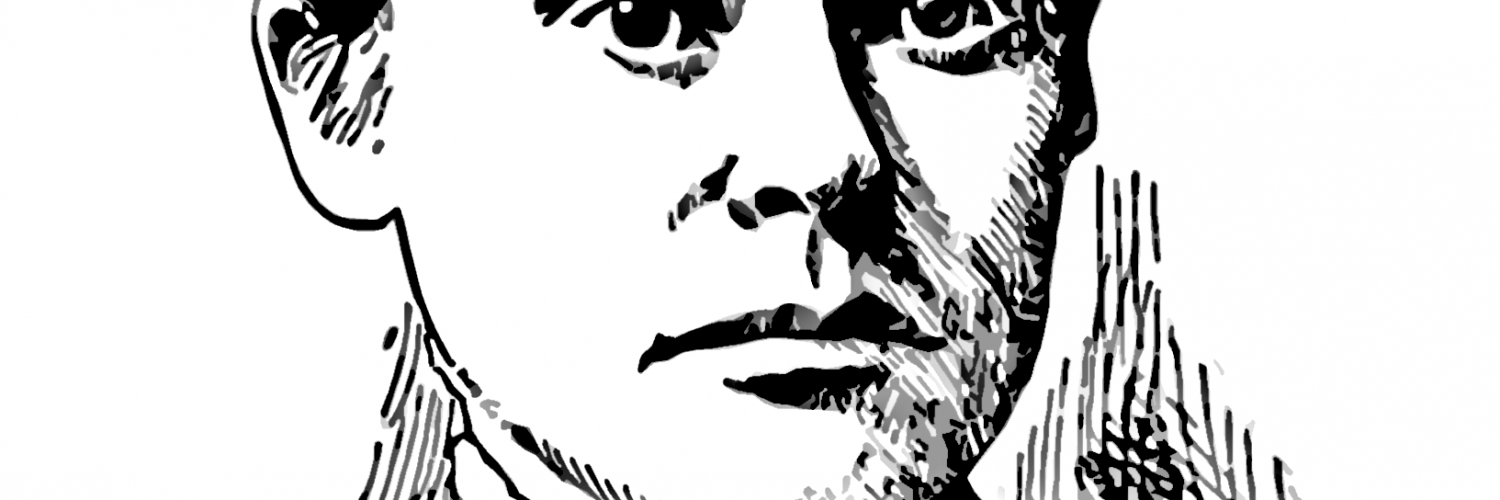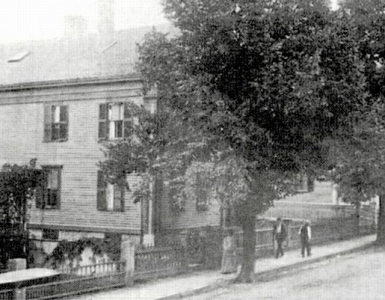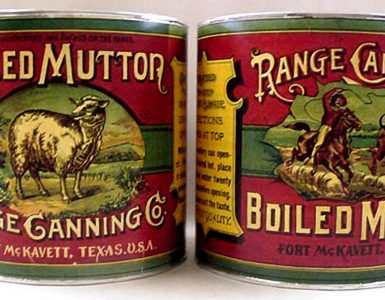by Laura Rudolph
First published in Fall, 2009, Volume 6, Issue 2, The Hatchet: Journal of Lizzie Borden Studies.
“Lizzie has told us another lie
worse than a lie – a confession!”
This remark appears as a handwritten notation in Appendix B, page 372, of The Commonwealth of Massachusetts vs. Lizzie A. Borden: The Knowlton Papers, 1892-1893. Appendix B is a reproduction of the personal trial notes of prosecuting attorney Hosea Knowlton in the State’s case against Lizzie Borden for the murders of her father, Andrew Jackson Borden and her stepmother, Abby Durfee Borden. It is a remark that has long tantalized those who have studied the Borden case. What, exactly, was the lie that Lizzie told that Knowlton believed to be a confession of murder?
Knowlton did not indicate a page number in reference to the stenographic minutes of the trial following his statement that Lizzie had lied and thus confessed. It appears between two other unnumbered comments. The preceding comment is a reminder to “Read the cross-examination & direct of Mrs [Adelaide] Churchills description of the dress.” The succeeding comment is a quotation from Mrs. Churchill’s testimony: “‘She generally lets me know when she goes’ says Bridget what she told Mrs. Churchill Mrs. Church. p.” Because of the notation’s placement, it has generally been believed that Knowlton discovered Lizzie’s lie and confession in the testimony of Adelaide Churchill.
A comparison between Churchill’s inquest and preliminary hearing testimony and the inquest testimony of Lizzie does conflict on one point that could be regarded as a lie on Lizzie’s part. It is in reference to Lizzie’s request that someone look for her mother:
(Churchill) “I cannot tell you when she (Lizzie) said it, I am very particular what I tell, she said once she wished somebody would try to find Mrs. Borden because she thought she heard her come in. Whether she sat on the stairs when she said it, I cant tell you. She thought she heard her come in.” (Inquest, Vol. 2, p. 132 [39])
Churchill repeated her statement during the preliminary hearing:
(Churchill) “I asked her [Lizzie] where her mother was. She said she had a note to go see someone that was sick. . . . But she did not know but that she was killed too. She then said she wished someone would try to find Mrs. Borden, for she thought she heard her come in.” (P.H., p. 272 [265])
During the preliminary hearing, Bridget Sullivan also testified that Lizzie had said that she heard Abby enter the house and requested a search:
(Bridget) “She [Lizzie] said she would like us to search for Mrs. Borden … She said she was positive she heard her coming in…” (P.H., p. 29 [215])
Alice Russell was the third witness to testify that Lizzie had asked that a search be made for Abby:
(Knowlton) “What was said and done when you got there [the Borden house], as well as you remember it?”
(Russell) “I have a very confused idea of it. I have tried my best to have it clear. I met Lizzie, and I said ‘sit right down here Lizzie in the kitchen’; and she sat down. I dont seem to remember what she [Lizzie] said or done, except she says ‘will somebody find Mrs. Borden.’” (Inquest, Volume 2, p. 147 [54])
In her inquest testimony, Lizzie stated that she did not hear Abby leave or re-enter the house and that she did not make a request for a search:
(Knowlton) “Did you hear her [Abby] come back?”
(Lizzie) “I did not hear her go or come back, but I supposed she went.” (Inquest, Volume 1, p. 65 [22])
. . .
(Knowlton) “Did you suggest to anybody to search up stairs?”
(Lizzie) “I said, ‘I don’t know where Mrs. Borden is;’ that is all I said.”
(Knowlton) “You did not suggest that any search be made for her?”
(Lizzie) “No sir.” (Inquest, Volume 1, p. 83 [40])
Lizzie soon modified her statement, perhaps realizing that there were at least three other witnesses who could and did state differently:
(Lizzie) “I did not do anything, except what I said to Mrs. Churchill. I said to her: ‘I don’t know where Mrs. Borden is. I think she is out, but I wish you would look.” (Inquest, Volume 1, p. 83 [40])
We now have the testimonies of three witnesses that seem to contradict Lizzie’s inquest testimony regarding whether or not she heard Abby enter the house or whether or not Lizzie asked that the house be searched. In addition, two of the witnesses, Russell and Churchill, both stated that Lizzie asked that a search be made for Abby soon after they entered the house. While this contradiction appears to indicate a lie on Lizzie’s part, it does not seem to be the confession of murder noted by Knowlton. But it is an important piece of evidence to remember—that Lizzie asked several people to look for Abby soon after they entered the house because she must have believed that Abby was in the house.
Another important piece of evidence to consider is Bridget’s preliminary hearing testimony in reference to what Lizzie had told her concerning when Abby had left the house that morning:
(Bridget) “. . . She [Lizzie] said Mrs. Borden was going out, or gone out, I could not catch the two words she said; that somebody was sick.” (P.H., p. 24 [210])
At the time of the trial, Bridget was more conclusive:
(Bridget) “. . . She [Lizzie] says, ‘If you go out, be sure and lock the door, for Mrs. Borden has gone out on a sick call…” (Trial, Vol. 1, p. 237)
Soon after Lizzie had told Bridget that Abby had “gone out on a sick call,” Bridget climbed the back stairs to her attic room for a short rest. At that point, as far as Bridget knew, Abby was not in the house. Bridget certainly never stated that she heard or saw Abby enter the house before she went to her room.
So, what was the lie that Lizzie told that could be construed by Knowlton as a confession? In order to determine this, let us look more closely at an issue that has long been dismissed as “unimportant” or “solved”—the issue of the sheet that covered Andrew’s body. When was it covered and why?
After Mrs. Churchill, Dr. Seabury Bowen was the next “outsider” to enter the Borden house following the murders. Bridget, who had been sent by Lizzie to fetch Alice Russell, followed him. Dr. Bowen was directed to the sitting room where Andrew’s body lay and he entered it alone. Shortly afterward, Russell entered the Borden house. After viewing Andrew’s mutilated body, Dr. Bowen left the sitting room and it was at this point in time that he asked for a sheet to cover Andrew’s body. Why?
From watching the news, and hopefully not from personal experience, we have become so accustomed to seeing a sheeted body strapped to a gurney that Dr. Bowen’s request seems entirely reasonable. Yet at no time was Abby’s body covered with a sheet in the guest room after it was found. Why, then, was Andrew’s body covered?
In his inquest testimony, Dr. Bowen stated:
(Bowen) “. . . I told Bridget to get a sheet, and covered up Mr. Borden, and kept the [sitting room] door shut so the women would not see, and let the men go along.” (Inquest, Volume 2, p. 119 [26])
This might lead others to believe that Dr. Bowen requested the sheet out of respect for the women in the house. However, the “men” to whom Bowen was referring were the Fall River policemen, and Dr. Bowen had asked for the sheet before the first police officer arrived. This is attested to in the trial testimony of that first officer, George Allen:
(Moody) “Did you see Mr. Borden at that time?”
(Allen) “Yes, I went in there [the sitting room]. … He was lying on the sofa side of the door that opens from the dining-room to the kitchen.”
(Moody) “Was there a sheet over him at that time or not?”
(Allen) “No, sir.”
(Moody) “Did you see a sheet there?”
(Allen) “I did not. Dr. Bowen said he had sent for one.” (Trial, Vol. 1, p. 433)
By the time of the preliminary hearing, Dr. Bowen had omitted his reason for requesting the sheet:
(Bowen) “. . . I went directly out the door going from the sitting room to the kitchen, and told whoever was there that Mr. Borden had been killed, that he had been murdered.”
(Adams) “What was done? Was anything done about a sheet then?”
(Bowen) “I asked very soon for a sheet, I wont say how long afterwards.”
(Adams) “Was it at this first time you went to the house you asked for that?”
(Bowen) “Yes Sir.”
. . .
(Adams) “Now after this sheet was brought, which you think was sometime during this first visit to the house –”
(Bowen) “I am certain it was the first visit.” (P.H., pp. 401-402 [439])
Dr. Bowen’s testimony now agreed with that of the others who were present; he asked for the sheet to cover Andrew’s body during his first visit to the Borden house. However, he did not give, nor was he asked by defense attorney Melvin Adams, the reason for covering Andrew. This is not surprising considering that Dr. Bowen was called as a witness for the defense at the preliminary hearing.
Later in his preliminary hearing testimony, Dr. Bowen stated that he had covered Andrew’s body during his second visit:
(Bowen) “The second visit I told her [Lizzie] to go to her room. I covered Mr. Borden up, and had her friend Miss Russell take her up to her room.” (P.H., p. 405 [442])
In both his inquest and preliminary hearing testimonies, it appears that Dr. Bowen felt that it was necessary to give a reason and a time for covering Andrew’s body. Unfortunately, he did not offer an accurate or a consistent statement regarding either issue. Was there a witness who did?
Let us look at the testimony of Adelaide Churchill. In all of her testimony, Adelaide Churchill gave no reason for Dr. Bowen’s request for a sheet to cover Andrew’s body. She did, however, mention one detail that was potentially incriminating for Lizzie. In her witness statement to Officers Harrington and Doherty, Churchill stated that it was Lizzie who told her where to find the sheet:
(Churchill) “. . . Lizzie said we would find the sheets in the dressing room, which is off of Mrs. Borden’s room.” (W.S., p. 12)
Churchill repeated this statement at the inquest:
(Churchill) “. . . Dr. Bowen said he would like a sheet to cover up Mr. Borden. Bridget was to go and get it. Lizzie told her to go up in a small room, adjoining her mother’s room, I think she called it a dressing room.” (Inquest, Volume 2, p. 129 [36])
Though Churchill did not repeat this potentially incriminating testimony at the preliminary hearing or the trial, it is still part of the public record and should not be dismissed.
Besides Dr. Bowen and Churchill, Bridget was the third witness present who could give evidence regarding Dr. Bowen’s request for a sheet to cover Andrew. As her inquest testimony has disappeared, we do not know whether Bridget was asked any questions about this issue at that time. And, curiously enough, Bridget was not asked a single question about the sheet during the preliminary hearing. It is only when Bridget appeared for the prosecution at the trial that she was asked any questions regarding the sheet, and her testimony was given in such a way that it has led us to dismiss any suspicions about the covering of Andrew’s body:
(Bridget) “‘Oh,’ I says, ‘Lizzie if I knew where Mrs. Whitehead was I would go and see if Mrs. Borden was there and tell her that Mr. Borden was very sick.’ She [Lizzie] says, ‘Maggie, I am almost positive I heard her coming in. Won’t you go up stairs to see.’ I said, ‘I am not going up stairs alone.’”
(Moody) “Before that time that she said that had you been up stairs?”
(Bridget) “No, sir. I had been up stairs after sheets for Dr. Bowen.”
(Moody) “Into whose room?”
(Bridget) “Into Mrs. Borden’s and into the little room where he [Andrew] kept the safe.”
(Moody) “What led you to go up stairs into Mrs. Borden’s room? Describe all that was done and said.”
(Bridget) “Dr. Bowen wanted a sheet and I said ‘I guessed the sheets were up in Mrs. Borden’s room.” (Trial, Vol. 1, pp. 247-248)
As Bridget told the story, she was not asked to look “up stairs” for Abby until after the sheet had been fetched from Abby’s dressing room. In addition, by claiming that she, herself, had mentioned where the sheets could be found, Bridget also effectively discredited Churchill’s witness statement and inquest testimony that Lizzie had told them where to find the sheets. Both statements were helpful to the defense, and, despite Moody’s request that Bridget “describe all that was done and said,” she did not. Bridget offered no reason for covering Andrew’s body.
There was one witness who could provide a reason—Alice Russell—and she did so in her inquest testimony:
(Knowlton) “What was said and done when you got there [the Borden house], as well as you remember it?”
(Russell) “I have a very confused idea of it. I have tried my best to have it clear. I met Lizzie, and I said ‘sit right down here Lizzie in the kitchen’; and she sat down. I dont seem to remember what she [Lizzie] said or done, except she says ‘will somebody find Mrs. Borden.’ She seemed to be very much overcome.”
(Knowlton) “Did she tell you anything about where to look for her?”
(Russell) “No Sir. Then I remember of Maggie and Mrs. Churchill starting, and Maggie says ‘O, I cant go through that room.’ Dr. Bowen says ‘get me a sheet, and I will cover Mr. Borden over’. They started and went after that.” (Inquest, Volume 2, pp. 147-148 [54-55])
“O, I can’t go through that room.” This was what Bridget had exclaimed, according to Alice Russell, when Bridget was told to look for Abby. What room would have been so frightening to Bridget that she would not go through it? It could only have been the sitting room where Andrew’s body lay. And so a sheet was fetched to cover Andrew’s body so that Bridget would not be afraid to go through the sitting room. Here was the initial, logical and rational reason for covering Andrew’s body: To allow Bridget and Churchill to go through the sitting room to look for Abby, as Lizzie had requested someone go looking. And it is also the evidence that points to Lizzie’s lie and confession:
(Knowlton) “I want you to give me all that you did, by way of word or deed, to see whether your mother was dead or not, when you found your father was dead.”
(Lizzie) “I did not do anything, except what I said to Mrs. Churchill. I said to her: ‘I don’t know where Mrs. Borden is. I think she is out, but I wish you would look.’”
(Knowlton) “You did not ask her to look?”
(Lizzie) “I said that to Mrs. Churchill.”
(Knowlton) “Where did you intend for her to look?”
(Lizzie) “In Mrs. Borden’s room.” (Inquest, Volume 1, p. 83 [40])
The statement made by Lizzie that the search was to begin in “Mrs. Borden’s room” was made difficult for Lizzie by the testimony of Bridget. During the preliminary hearing, and most probably in her inquest testimony, Bridget testified to the actions of Andrew when he returned to his home that morning. After being told by Lizzie that his wife was out on a sick call, Andrew visited the room he shared with his wife:
(Knowlton) “Where was Mr. Borden when you came into the dining room?”
(Bridget) “After coming down stairs from his room.”
(Knowlton) “Did you see him go?”
(Bridget) “I saw him take the key from the shelf.”
(Knowlton) “Was that after Miss Lizzie spoke to him?”
((Bridget) “Yes Sir.”
(Knowlton) “Where did he take the key from?”
(Bridget) “Off the sitting room shelf.” (P.H., p. 21 [207])
Obviously, if Abby’s body had been lying in their bedroom, Andrew would have seen it when he made his visit upstairs. This was so potentially damaging to Lizzie’s story that she vehemently denied the visit:
(Knowlton) “Don’t you remember he (Andrew) took the key and went into his own room and then came back?”
(Lizzie) “No, sir.”
(Knowlton) “You don’t remember anything of that kind?”
(Lizzie) “No, sir; I do not think he did go up stairs either.”
(Knowlton) “You will swear he did not?”
(Lizzie) “I did not see him.”
(Knowlton) “You swear you did not see him?”
(Lizzie) “Yes, sir.”
(Knowlton) “You were either in the kitchen or sitting room all the time?”
(Lizzie) “Yes, sir.”
(Knowlton) “He could not have gone up without he had gone through the kitchen?”
(Lizzie) “No, sir.” (Inquest, Volume 1, pp. 84-85 [41-42])
According to her own testimony, it would have been impossible for Lizzie to have missed seeing Andrew going upstairs to the bedroom he shared with Abby, as Lizzie agreed that she remained in the kitchen or sitting room “all the time.” If she were in the kitchen, she would have seen Andrew climbing the back stairs. If she were in the sitting room, she would have seen Andrew taking the bedroom key from the mantel shelf with the obvious intention of using it to enter his room.
At this point, it is important to recall Bridget’s testimony regarding Abby’s absence and potential return. She had testified that Lizzie told her that Abby was out on a sick call and, shortly afterwards, Bridget had gone to her room assuming that Abby was out of the house. It was only after Lizzie had raised the alarm and called Bridget downstairs that she said Lizzie told her that she was positive she heard Abby entering the house. Because of the timing, Bridget had to believe that Abby had returned while Bridget was resting upstairs and after Andrew’s visit to his bedroom, else Abby would have walked into the scene of his murder. For all Bridget knew, Abby could have been in her bedroom. But Bridget was not sent to Abby’s bedroom to search for Abby; she was sent there by Lizzie to fetch a sheet to cover Andrew’s body.
Therefore, the search for Abby was to begin, per Lizzie’s request, in the rooms accessible by the front stairs—the guest room and Emma and Lizzie’s bedrooms. All of the evidence points to this fact, despite Alice Russell’s inquest testimony that Lizzie did not tell them where to look. Lizzie was not a fool. She certainly wouldn’t have said, “Look upstairs in the guest room on the other side of the bed.” But, she undoubtedly directed the search to begin up the front stairs and, because of the layout of the house, it was only possible to reach the front stairs by passing through a portion of the sitting room where Andrew’s body lay—the sitting room that Bridget was so frightened to pass through that Dr. Bowen had asked for a sheet to cover Andrew’s body before she would go through it; the sheet that was in Abby’s dressing room, a small room off of Andrew and Abby’s bedroom that could only be accessed by the back stairs, a route that did not require a person to enter the sitting room at all; the sheet Lizzie told them where to find. So, Churchill and Bridget climbed the front stairs and, at the turn of those stairs, saw Abby’s dead body lying on the floor in the guest room.
Here was Lizzie’s lie, as Knowlton saw it—that Lizzie had asked that the search begin in “Mrs. Borden’s room.” She did not. Nor did she ask that the search begin in the parlor or down in the cellar. If she had, there would have been no reason for Bridget, anticipating a walk near the gruesome scene in the living room, to say, “O, I can’t go through that room!” and thus, no reason to cover Andrew’s body with a sheet.
But was the lie a confession of murder? It was not. At most, it showed a degree of complicity involving Lizzie in that she was more than likely aware that Abby’s body lay in the guest room. How deeply Lizzie was involved in the murders of her father and her stepmother remains yet another tantalizing question.
Works Cited
Burt, Frank H. The Trial of Lizzie A. Borden. Upon an indictment charging her with the murders of Abby Durfee Borden and Andrew Jackson Borden. Before the Superior Court for the County of Bristol. Presiding, C.J. Mason, J.J. Blodgett, and J.J. Dewey. Official stenographic report by Frank H. Burt (New Bedford, MA., 1893, 2 volumes). Orlando: PearTree Press, 2005.
Inquest Upon the Deaths of Andrew J. and Abby D. Borden, August 9 – 11, 1892, Volume I and II. Fall River: PearTree Press, 2004.
Martins, Michael, and Binette, Dennis, eds. The Commonwealth of Massachusetts vs. Lizzie A. Borden: The Knowlton Papers, 1892-1893. Fall River: The Fall River Historical Society, 1994.
Widdows, Harry, Koorey, Stefani, Koorey, Kat, eds. The Preliminary Hearing in the Lizzie Borden Case, New Edition. Fall River: PearTree Press, 2009.
The Witness Statements for the Lizzie Borden Murder Case, August 4 – October 6, 1892. Orlando: PearTree Press, 2004.






